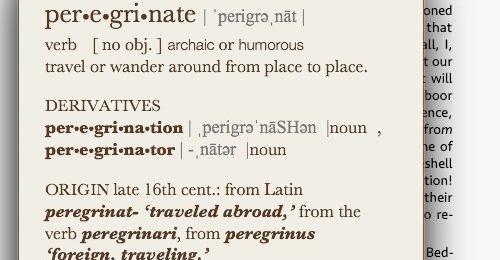ChatGPT is not a viable alternative to search in early 2023 – at least not for anything but ‘structured data’ and even there it can get things ‘wrong’. But the AI has potential to be a very powerful tool – what Excel is to the Abacus?
But like all new technologies, the AI has its fanboys, who have jumped onto the bandwagon because it seems like cool tech without really thinking about the mass-market or the long term implications of a black-box that has the ability to shape what our version of ‘truth’ is.
Some of the objections to criticism include:
- You’re not using it right. If you get the wrong answer, it’s because you are asking the wrong questions. That could be a small part of it. Some people don’t know that you can frame your Google search in such away as to bring back different answers, like putting keywords in quotation marks or adding the qualifier ‘near me’.
- It’s early days. Yes. ChatGPT comes with a bunch of caveats. It’s an experimental prototype and we shouldn’t expect too much of it. It shouldn’t be relied upon, which should be in bold red type on every answer and added to any place where the answers are cut and paste.
- Try asking it something funny – a variation of ‘you’re not using it right’.
That last one was a comment on a Linkedin post, specifically:
Ask ChatGPT something fun and potentially interesting like: “re-write A CATCHER IN THE RYE in the context of the Book of Proverbs from the King James Version of the holy Bible”.
Linkedin
Here’s why I think that particular example helps to put ChatGPT into perspective. This prompt moves the debate forward in an interesting way. Of course you need to have some prior knowledge of modern literature and the history of religion to see why this prompt is so incongruous.
The Catcher in the Rye, written by the reclusive and enigmatic author J.D. Salinger in 1951 is a modern literary classic, which is known partly for it’s use of language. One of the things that makes the book notable is the style in which it is written – using 50s slang in the first person. So maybe, if we really wanted to challenge the ChatGPT AI we should ask it to rewrite the King James Bible in the style of Catcher in the Rye.
But the prompt doesn’t actually say ‘style of’, it says ‘context of’, which is a very different thing, and that kind of specificity should make big differences to the output of an AI language model.
And why ‘The Book of Proverbs’ specifically? In the context of the 1950s, The Catcher in the Rye was controversial. Words like Hell and Damn were seen as ‘curse words’, so in the context of the 1500s when a former Archbishop of Canterbury oversaw the creation of the King James Bile, the Catcher in the Rye would be even more scandalous.
Furthermore, there are specific references to the Bible and organised religion by the main character Holden Caufield. He doesn’t “care too much for most of the other stuff in the Bible,” and he thinks that ministers and preachers are ‘phony’.
So what are we looking to ask ChatGPT to do here?
Are we just having a bit of fun? Using the massive computing power of an AI to amuse us – assuming we find English from the 1500s funny when applied to the observation of phoniness of the world of the 1950s? That’s some esoteric humour.
Or, are we asking the AI to rewrite a modern American piece of literature with the moral compass and religious norms in place at the time of the creation of the King James Bible? That the behaviour of the main character should be changed to observe the religious ‘laws’ in place in the Book of Proverbs? What else should we ‘re-write’ with a different lens?
We live in a time when books in school libraries are being removed because they offend certain sections of the population. This was also the case when Catcher in the Rye was published. There is an edge case here, where Catcher in the Rye is ‘re-written’ by the AI to make it more palatable to certain elements of society and then re-published in a way that the original disappears. It’s an edge case, but it’s possible – especially in the absence of critical thinking.
Maybe I’m overthinking this. Maybe it was just a throwaway example, like how to get a peanut butter sandwich out of a VCR in the style of the King James Bible (We’ve talked about that) That’s funny.
But this is very different. The prospect of works created at a certain time, in a certain place, in a certain context being ‘re-written’ by an AI sets off some big alarms in my head. What happens next?
Featured image is “Holden Caufield reading the Bible” as imagined by the MidJourney AI.





No Comments